
6 Supplements For Your New Year
You don't have to have a nutrition degree to understand supplements. Here are 6 game-changing supps that can help you achieve whatever goal you're training for!
I have been taking supplements for the better part of my adult life. When I was younger—I'll be honest here—it was all the hype supplements. You know the ones. They "guaranteed" I would gain 10 pounds of muscle or bench press 50 more pounds in a month. I simply took them and trusted that they worked.
Then, in 2011, I almost died from an electrolyte deficiency. I couldn't believe it, because I thought I had pretty much solved the nutrition riddle. Turned out I definitely hadn't! But I heeded the wake-up call and gave a more critical eye to everything that entered my body. Supplements will always be a part of my nutritional protocol, but I'm more committed than ever to knowing what each individual one does for me. I no longer trust anything without doing plenty of research first.
Not everything I used to take withstands my new level of scrutiny. But these six supplements still have a place in my fitness regimen, and could be game-changers for you, too.
Why Food Really Matters
This is the point in the article where someone usually tells you that you need to dial in your nutrition first, because otherwise your body won't change at all, no matter how many supplements you take. This is true—to a point. Honestly, you might take something new and see a small change in the short term. But did the supplement really cause that change, or did something in your diet? If you don't have an in-depth knowledge of and control over what you eat, then you simply don't know. And—here's the key—if you want the change to last more than just a day or two, you need to know. Otherwise, you're just throwing money around.
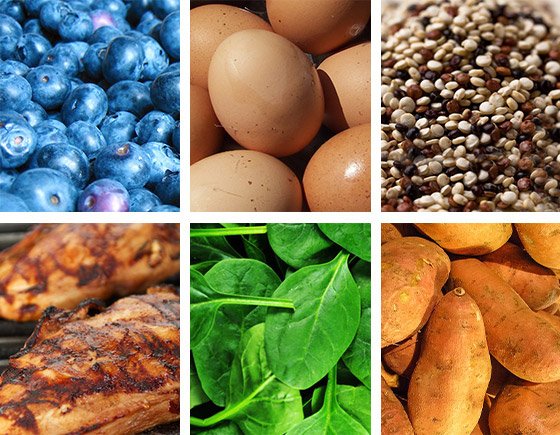
Does this mean you have to obsess over your diet? Definitely not; you just need to be on top of it. My nutrition plan is pretty straightforward. I eat to stay lean throughout the year so I can be ready for photo shoots, competitions, and event appearances when needed. But I also want to continue to develop my physique and add on quality muscle where I can. To achieve this, I make sure my nutrient intake aligns with my goals. You must do the same.
According to the Academy of Nutrition and Dietetics, the recommended macronutrient distribution ranges for adults are as follows: 10-35 percent of your daily calories should come from protein, 20-35 percent of your daily calories should come from fat, and 45-65 percent of your daily calories should from carbohydrates. It's easy to look down on these numbers, since they're for the general public rather than bodybuilders and athletes. But if you don't know what your macros are, then these are better than yours. Sorry to rain on your snack parade.

So start by tracking what you do now, and then get systematic. Here's my breakdown, as a point of comparison. To gain the most muscle with the least amount of fat, I get 40 percent of my calories from carbohydrates, 30 percent from protein, and 30 percent from fat. When I'm trying to build muscle, I may take in more carbs and protein and eat slightly less fat, but it all depends on how my body reacts.
After years of following this basic system, I know what it looks like on the plate, what it feels like through the day, and what results it will produce in combination with my training. So when I add a supplement—any supplement—into the mix, I can be more confident in saying whether it's working or not.
MY SUPP STAPLES
Just like macronutrient breakdowns, supplement stacks really only work in support of specific goals. But once you've got a sustainable, systematic approach to nutrition, these six supplements can make a big difference in your results in the gym and the mirror.
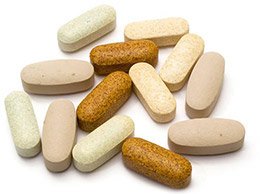
Multivitamin
If you're on a fairly regimented diet, a multivitamin serves as a failsafe for your nutrition. Taking a little pill or two can ensure that your body is getting its daily dose of essential vitamins and minerals, which is especially important, given how depleting hard training can be.* Moreover, one or two capsules of multivitamins are much easier to take than the handful you'd need if you were taking a pill for each individual vitamin.
When choosing a multi, examine the label critically. Some are geared toward athletes, some to men, and some to women, and some to certain age groups. Know the differences, and know why what you're taking is right for you. Make sure you are getting something that is high quality, easy to digest, and free of fillers.
Whey Protein
Although you can get all of your protein needs through whole food, if you're like most of us you'll probably find yourself getting tired of eating pretty quickly. This is where a shake can be crucial. If you're in this for the long haul—aren't you?—whey protein makes for a quick, convenient source of quality calories and makes getting those essential amino acids much easier.
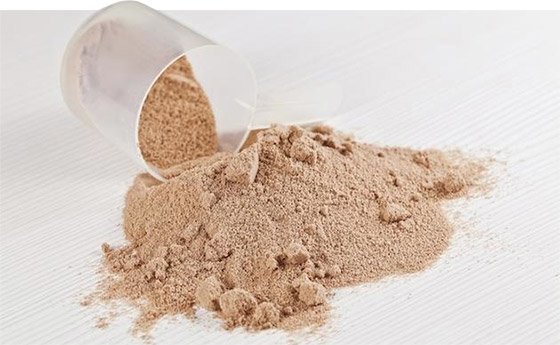
For those who need a lot of protein and don't have the time to sit down for 6-7 meals, it can mean the difference between sticking to your macros and going AWOL.
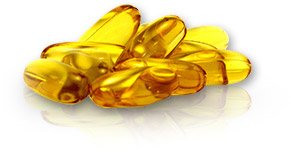
Fish Oil
Fish oil delivers omega-3 fatty acids that our bodies can't make on our own. Even if you eat fish 1-2 times per week, you won't get enough omega-3s to meet your body's needs. By taking a high-quality fish oil, you can reduce triglycerides, lower your risk of heart disease, improve recovery from exercise, and protect your brain health.*
A growing body of research also suggests that omega-3s may even help you lose body fat. Like multivitamins, though, quality is crucial when it comes to fish oil. When choosing a good fish oil supplement, look for one that contains a minimum of 2 grams combined EPA and DHA daily.
Creatine
When I was in high school, creatine was all the rage. But at the time, creatine was also one of the most expensive supps, especially for a teenage kid. The first time I took creatine, I felt like I was superhuman! (Now that I look back, I'm sure the acute effects were just all in my head.)
Although I wasn't any closer to joining the Justice League, I did notice consistent gains when I took creatine. Fortunately, the price has since come way down! I recommend it to anyone trying to add quality muscle.
Creatine is one of the most extensively studied nutritional supplements, and has repeatedly been found to be safe. Today, it is being effectively utilized by hundreds of thousands of athletes in all types of sports.
But what does it do? The short story is that it provides your muscles with more of their preferred fuel during intense exercise, leading to a more pronounced training effect.
Using 3-5 grams per day can help improve strength and speed, and help you put on weight.*
Vitamin D3
Vitamin D often gets overlooked, but given that well over half of the population is deficient in this crucial nutrient, I think it qualifies as a must. To use me as an example, I do my best to be active outdoors as often as possible, and I hit the tanning beds on occasion. Despite this, I have twice now been diagnosed as vitamin D deficient. The second time that happened, I decided to be more proactive and add this inexpensive supp into my daily mix.
Sufficient levels of vitamin D are essential for maintaining good health in far too many ways to list here. Low vitamin D levels have been linked to weight gain, depression, poor nutrient absorption, and low bone density.* When you look for a Vitamin D product, make sure it's D3, which is the most bioavailable form.
Greens Products
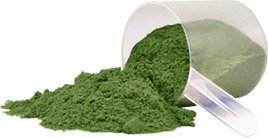
I'll be honest: I don't need to take a greens product because I eat way more fruits and veggies than are recommended. However, I know that I'm the exception. Less than 6 percent of men and 9 percent of women aged 5-34 consume the recommended minimum of five servings of fruits and vegetables each day. Add complications like travel into the mix, and the odds against you shrink even more.
Greens can help fill this void and help keep you healthy.* They're not a replacement for fruits and vegetables—nothing is—but they're a solid backup plan.
These are the supplements that work really well for me, but there's no telling if they'll work as well for you. We all have different bodies that respond in their own way to nutrition and training. Where one person may thrive, another may not. But there's always an explanation if you look hard enough, so pay attention to your body and the changes that occur. Give things time to work, and then make adjustments to your training, nutrition, and supplementation when necessary.
This isn't a race; it's a lifestyle. Make each step a step forward.
Recommended For You

Eat Like A Beast! Brandan Fokken's Bulking Meal Plan
Here's what Brandan Fokken eats during his off-season. It's enough food to help him grow muscle, but not so much that he can't be photo-ready in 60 days!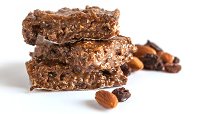
Feast Like A Beast: 8 Must-Try Healthy Whey Protein Snacks
Everyone gets tired of shakes once in a while. When it happens, eat your whey with these fitness-pro-approved snack recipes!

